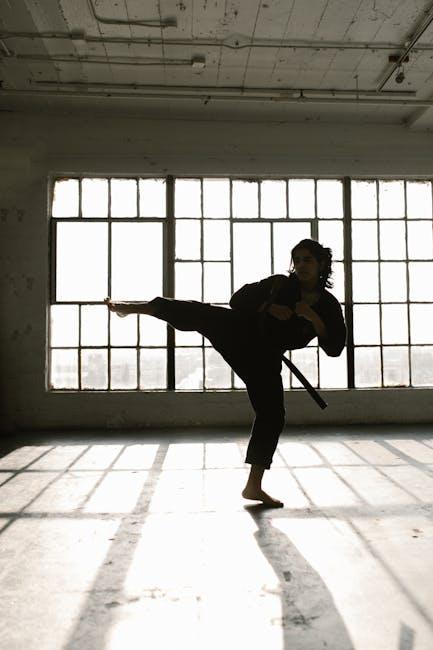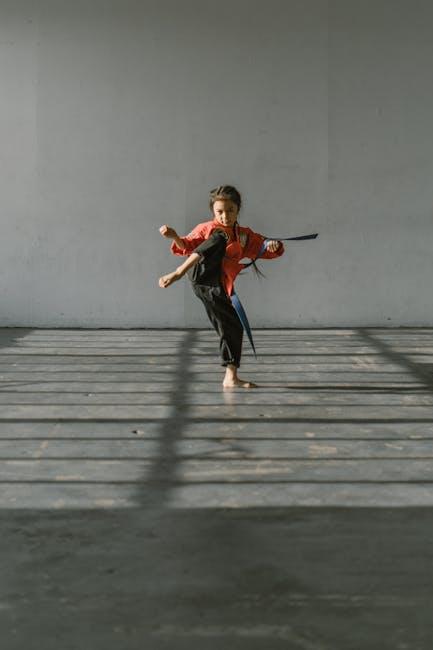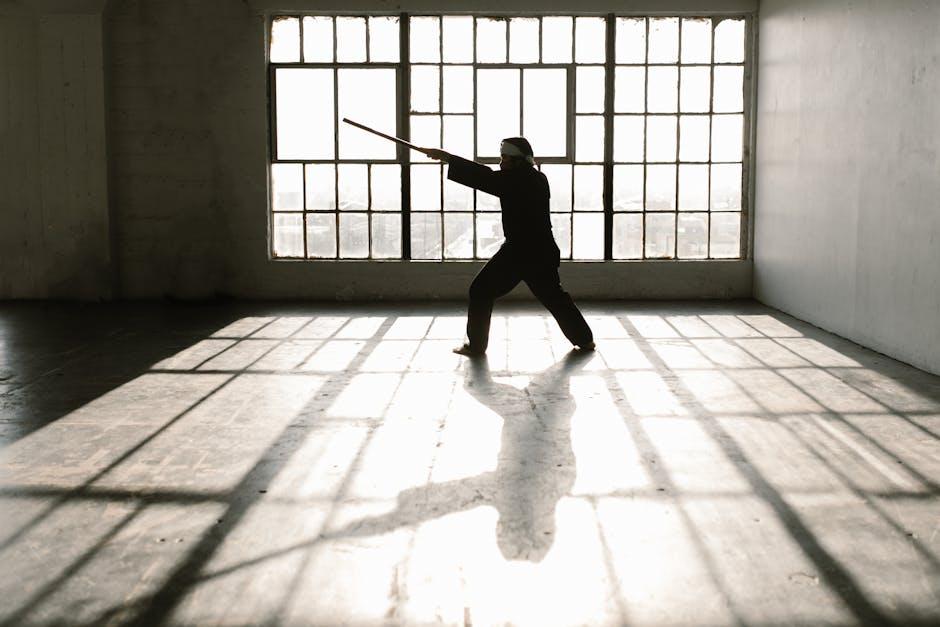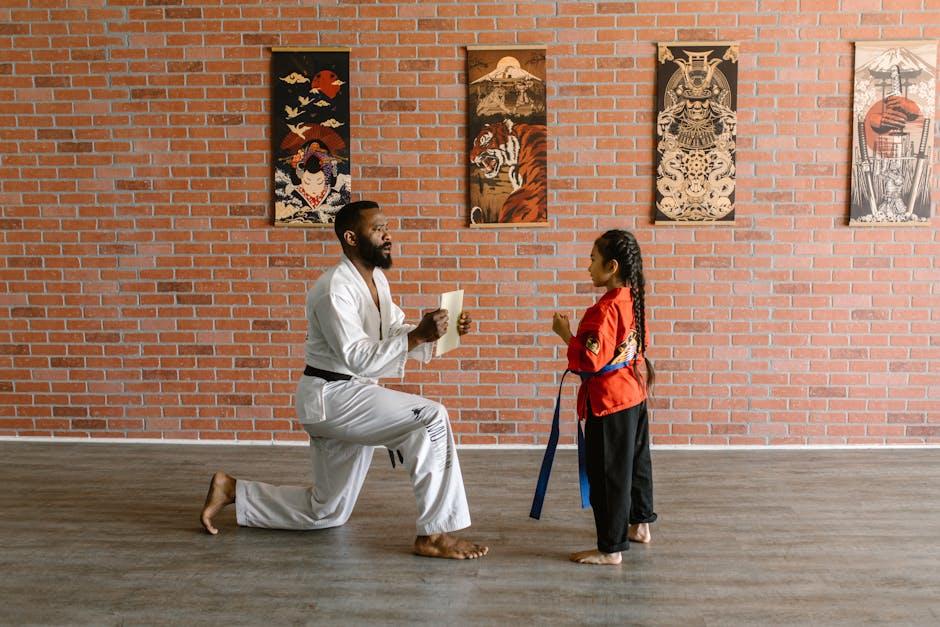In the electrifying world of mixed martial arts, few elements capture the imagination and hearts of fans quite like a fierce rivalry. The Ultimate Fighting Championship (UFC) has been the stage for some of the most intense and memorable rivalries in sports history, where warriors clash not only for titles but for pride, legacy, and personal vendettas. These rivalries transcend the octagon, weaving stories of grit, determination, and raw emotion that continue to fuel the sport’s enduring appeal. This article dives into the most famous UFC rivalries that have defined eras, shaped careers, and left an indelible mark on the world of combat sports.
Table of Contents
- The Origins and Impact of Iconic UFC Rivalries
- Epic Showdowns That Defined Careers and Legacies
- Psychological Warfare and Mind Games Inside the Octagon
- Analyzing Fight Styles and Strategies in Legendary Clashes
- Fan Perspectives and the Role of Media in Rivalry Hype
- Lessons for Aspiring Fighters from Historic UFC Feuds
- Q&A
- Closing Remarks

The Origins and Impact of Iconic UFC Rivalries
At the heart of the Octagon, UFC rivalries have often been ignited by more than just competition—they are fueled by personal vendettas, cultural clashes, and the relentless pursuit of legacy. These rivalries trace back to moments where fighters’ paths intersected with high stakes, intense trash talk, and sometimes controversial decisions, sparking narratives that fans couldn’t ignore. It’s this interplay of skill and story that amplifies the excitement, turning fights into historic showdowns remembered long after the final bell rings.
Beyond the entertainment factor, these iconic rivalries have impacted the UFC landscape in profound ways:
- Increased viewership: Rivalries draw casual fans into deeper engagement with the sport.
- Elevated fighter legacies: Victories in heated matchups often define careers and immortalize fighters.
- Promotion of new stars: Rivalries can launch previously under-the-radar fighters into superstardom.
- Innovation in storytelling: They push the UFC to develop richer narratives around each event.
| Rivalry | Key Aspect | Impact |
|---|---|---|
| Jones vs. Cormier | Clash of Champions | Elevated light heavyweight division excitement |
| McGregor vs. Diaz | Personality & Style Clash | Broadened global UFC audience |
| St-Pierre vs. Hendricks | Technical Mastery vs. Power | Showcased MMA’s strategic depth |

Epic Showdowns That Defined Careers and Legacies
Throughout UFC history, certain battles transcended the octagon, becoming pivotal moments that not only tested skill and spirit but also shaped the destinies of fighters. These encounters were more than just matches; they were intense clashes where reputations were forged and legacies cemented in front of a global audience. Fighters entered these arenas carrying personal vendettas, contrasting styles, and unwavering determination. Each bout left fans on the edge of their seats as warriors pushed beyond limits, making history with every strike, takedown, and submission attempt.
Among the countless rivalries, several stand out as defining moments in MMA lore, illustrating how competition can elevate athletes to legendary status. These epic showdowns were marked by:
- High Stakes: Championship titles or career-defining wins.
- Unmatched Skill Showcases: Technical mastery meshed with raw power.
- Emotional Intensity: Personal pride and fierce motivation fueling every second.
| Rivalry | Key Moment | Impact on Career |
|---|---|---|
| Jon Jones vs. Daniel Cormier | Multiple title bouts and fierce exchanges | Elevated both as #1 light heavyweight icons |
| Ronda Rousey vs. Holly Holm | Shocking title upset by knockout | Shifted women’s MMA landscape dramatically |
| Conor McGregor vs. Nate Diaz | Two electrifying fights filled with drama | Boosted McGregor’s global superstar status |

Psychological Warfare and Mind Games Inside the Octagon
In the brutal ballet that unfolds within the Octagon, victory is often won far beyond physical combat. Fighters engage in intricate psychological warfare, attempting to dismantle their opponent’s confidence before the first strike even lands. From intense stare-downs to provocative trash talk during press conferences, these mind games add a complex layer to the sport’s drama. Notable rivalries have hinged on who could control the narrative outside the cage, forcing adversaries into self-doubt and hesitation.
Understanding the mental aspect is crucial to comprehending why some UFC rivalries burn hotter than others. It’s not just about physical prowess—it’s about who can manipulate emotions, fuel rage, or project unwavering confidence. Some classic tactics include:
- Feigning weakness to lure an opponent into a trap.
- Playing mind games with subtle gestures during fights.
- Controlling media narratives through strategic interviews and social media posts.
| Fighter | Mind Game Tactic | Impact on Rivalry |
|---|---|---|
| Conor McGregor | Taunting and verbal jabs | Heightened hype and psychological edge |
| Chael Sonnen | Relentless trash talk | Frustrated opponents and media frenzy |
| Ronda Rousey | Cold, fearless stare-downs | Intimidation leading to opponent hesitation |

Analyzing Fight Styles and Strategies in Legendary Clashes
In legendary confrontations, the contrasting fight styles of two contenders often define the narrative and outcome of the battle. Strikers rely on powerful, precise punches and kicks to keep their adversaries at bay, while grapplers seek to close the distance, aiming for dominant positions or submissions. Fighters who expertly blend these approaches can adapt fluidly as the fight progresses, making them unpredictable and challenging to counter. Such adaptability frequently turns a clash into a gripping chess match of tactics, where feints, setups, and timing play as crucial a role as raw physical prowess.
The strategies deployed during these iconic matchups showcase not only technical skill but also mental fortitude. Consider these critical elements that swing momentum:
- Control of pace and distance: Determines if the encounter unfolds in striking range or grappling zones.
- Counterattack opportunities: Capitalizing on an opponent’s mistake to shift the balance swiftly.
- Endurance management: Gradual energy preservation or explosive bursts to finish strong.
- Psychological warfare: Using intimidation or resilience to unsettle the opponent’s focus.
| Style | Key Advantages | Common Strategy |
|---|---|---|
| Striking | Reach, speed, explosive power | Maintain distance, exploit counterpunch |
| Wrestling | Control, takedowns, ground positioning | Close distance, impose top control |
| Brazilian Jiu-Jitsu | Submissions, positional dominance | Take opponent to ground, seek submission |

Fan Perspectives and the Role of Media in Rivalry Hype
Fans play a monumental role in transforming mere matchups into legendary UFC rivalries. The passion and emotions that supporters bring to the octagon atmosphere often fuel the athletes’ performances and the overall spectacle. Social media channels buzz with heated debates, memes, and predictions, turning these rivalries into trending phenomena. For many fans, the buildup — trash talk, press conferences, weigh-ins — becomes just as thrilling as the actual fight. This emotional investment creates a collective energy that transcends the sport, fostering a unique community centered around allegiance and anticipation.
Meanwhile, the media acts as both narrator and catalyst, amplifying every tension point and backstory with expertly crafted storytelling. From highlight reels to in-depth analyses, the channels shaping narrative arcs enhance the drama, often framing fighters as heroes or villains. Below is a snapshot of how different media outlets contribute to rivalry hype:
- Sports Networks: Deliver live coverage and expert commentary, setting the scene for headline bouts.
- Podcasts: Offer insider perspectives and fan discussions that delve deeper into fighter psychology.
- Social Media: Facilitate direct athlete-fan engagement, spreading hype through viral content.
- Combat Sports Journals: Provide detailed histories and tactical breakdowns, enriching rivalry contexts.

Lessons for Aspiring Fighters from Historic UFC Feuds
Historic UFC rivalries offer invaluable lessons for those stepping into the cage. Beyond physical prowess, these feuds highlight the importance of mental toughness and strategic adaptability. Fighters who excel mentally can turn personal animosity into fuel, channeling emotions without losing focus. Discipline in preparation and staying calm under intense pressure have repeatedly proven to be the difference between victory and defeat in some of the sport’s most heated battles.
The dynamics of legendary matchups teach future fighters to embrace respect amidst rivalry. Memorably, many of these feuds ended with mutual growth despite fierce competition, signaling the need for sportsmanship. Key takeaways include:
- Mastering patience during exchanges to avoid costly mistakes
- Adapting fight styles mid-bout based on opponent behavior
- Understanding promotional buildup without letting it cloud performance
- Using rivalry-driven motivation to elevate one’s skillset consistently
| Lesson | Explanation | Example Rivalry |
|---|---|---|
| Mental Resilience | Maintaining composure despite trash talk and crowd pressure | Conor McGregor vs. Nate Diaz |
| Strategic Evolution | Modifying fight tactics in response to opponent’s style | Jon Jones vs. Daniel Cormier |
| Sportsmanship | Respecting rivals even amid intense personal conflict | Chuck Liddell vs. Tito Ortiz |
| Emotional Control | Transforming aggression into focused energy for the fight | Ronda Rousey vs. Miesha Tate |
Q&A
Q&A: Exploring
Q1: What makes a UFC rivalry truly memorable?
A1: A memorable UFC rivalry often combines intense personal tension, high-stakes battles, and contrasting fighting styles. It’s about more than just skill; it’s the stories fighters tell inside and outside the Octagon that captivate fans and leave a lasting legacy.
Q2: Which UFC rivalry is considered the most iconic in the sport’s history?
A2: Many would argue the rivalry between Chuck Liddell and Tito Ortiz stands out as iconic. Their clashes defined an era of UFC, blending fierce competition with personality clashes that drew massive attention and helped elevate the sport to new heights.
Q3: How do UFC rivalries impact the fighters involved?
A3: Rivalries can fuel motivation, pushing fighters to train harder and perform at their best. At times, they also bring psychological challenges, including pressure from fans and media. The emotional stakes add depth to their careers, shaping their public personas and fight legacies.
Q4: Can rivalries be manufactured, or do they always grow naturally?
A4: While promotional hype can ignite or exaggerate tensions, the strongest UFC rivalries typically grow organically from genuine personal or professional animosity. Authentic conflicts resonate more deeply with the audience, making fights feel more consequential and authentic.
Q5: What role do fighting styles play in UFC rivalries?
A5: Contrasting fighting styles add a thrilling tactical dimension to rivalries. For example, a striker versus a grappler rivalry creates dramatic clashes of approach and skill, drawing fans eager to see which style prevails under pressure.
Q6: Are there any recent UFC rivalries gaining attention today?
A6: Indeed, new rivalries often emerge as fighters rise through the ranks. Current rivalries are driven by rising stars who bring fresh energy, personalities, and competitive fire, continuing the tradition of captivating storylines in the UFC.
Q7: Why do fans love following UFC rivalries?
A7: Fans are drawn to rivalries because they add narrative drama to the sport. Beyond physical combat, rivalries tell stories of pride, redemption, and rivalry, transforming every fight into a chapter in a larger saga that keeps audiences emotionally invested.
Q8: How do UFC rivalries influence the sport’s popularity?
A8: Rivalries generate buzz, sell tickets, and boost pay-per-view numbers. They create talking points and memorable moments that ripple beyond the Octagon, helping to grow the UFC’s global fanbase and solidify its place in sports culture.
Closing Remarks
From legendary battles etched into the fabric of MMA history to clashes that continue to ignite the Octagon’s fiery spirit, famous UFC rivalries remind us why the sport captivates millions worldwide. Beyond just fists and fury, these fierce competitions are stories of passion, pride, and perseverance that transcend the cage. As new matchups emerge and rivalries evolve, one thing remains certain: the thrill of competition will keep fans on the edge of their seats, eagerly anticipating the next chapter in UFC’s enduring saga.


